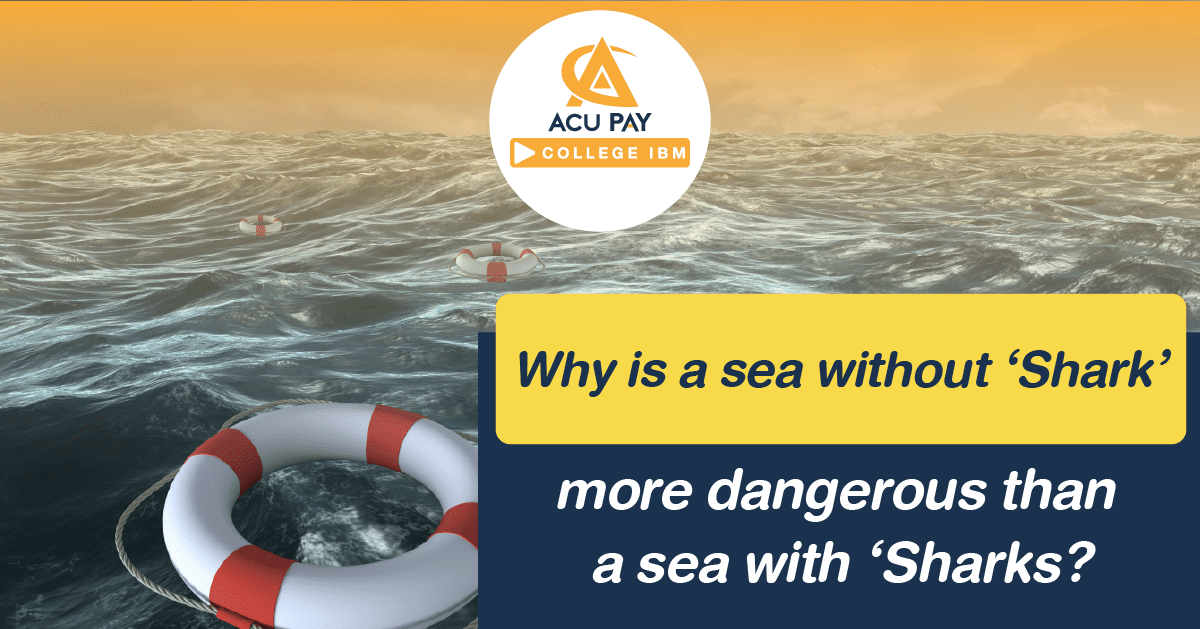

Our world is covered with almost 70% of water which is very important to our world and many other living things on earth. Among sea animals, one of the sea animals which plays an important role in maintaining a delicate balance of the ecosystem is ‘Shark’, a predator of the sea that many people see as a fierce and dangerous animal. However, did you know that a sea without sharks has an impact on the sea ecosystem more than we thought. This time, ACU PAY will take you to explore and find out why a sea with no sharks is more dangerous than a sea with sharks.
Sharks are aquatic animals that have been descended for a long time since the pre-dinosaurs era, or about 400 million years ago. Sharks have evolved themself to survive from the past until now which is different from dinosaurs that were extinct already.
There are 2 types of sharks; water surface sharks and ground surface sharks. Nowadays, there are more than 400 species of sharks that can be found all over the world and most of them are carnivores. A few species of sharks are plankton-eating sharks or scavengers. That the reason why sharks are seen as
dangerous, fierce, and scary sea animals.
Sharks are not only the predators but sharks are also considered as the animals which are important to the sea ecosystem. Since sharks are on the top of a food chain, they are responsible for keeping the balance of marine fish populations.
They will eliminate those fish that are slow, sick or nearly die so that each species of fish will only have the healthy ones. It also controls the population of herbivorous fish to an appropriate level, not causing damage to their habitats, such as preventing the aquatic plants from falling too much or the overpopulation of fish which will make it too dense in each area. In addition, it controls the population of smaller carnivorous fish to appropriately allocate the marine resources of the fish population.
If there are no sharks left in the sea ecosystem, it will also have a chain effect on the food chain in the sea. If the number of sharks decreases, Giant groupers, a secondary predator, will increase in number rapidly which cause too much hunting on herbivorous fish and lower the number of herbivorous fish. As a result, the amount of algae that covers the area has increased to take over the areas of the coral reef, causing corals to deteriorate and eventually collapse the marine ecosystem.
In addition to the impact on the environment, the economy is also affected by the disappearance of sharks as the economic aquatic animals such as scallops and abalones in nature decrease as well.
In addition to the risk of shark extinction from humans such as hunting sharks for fancy menus like ‘shark’s fin soup,’ another important factor is global warming, which raises sea water temperatures. Global warming makes many sea creatures have to immigrate to somewhere more suitable to live which causes changes in the environment as well.
What’s worrisome is the migration of the ” great white shark” . Due to the increase in water temperature, some of the young great white sharks that live off the coast of California, migrate about 600 kilometers north to stay in colder waters. When sharks gather together in a large number, the population of “sea otters” decreases by 86 % because they are hunted by sharks.
What’s worrisome is that once the sharks migrate, they won’t move back to their original location even when the temperature of their old area gets back to normal which causes damage to two sea ecosystems.
In conclusion, we will see that the sea without sharks is more dangerous than the sea with sharks. The reason why sharks, the ocean balance keepers, are slowly disappearing along with sea ecosystems is humans. Thus, we should turn our attention to nature and global warming that is affecting both us and the big animals in the same world.
References from